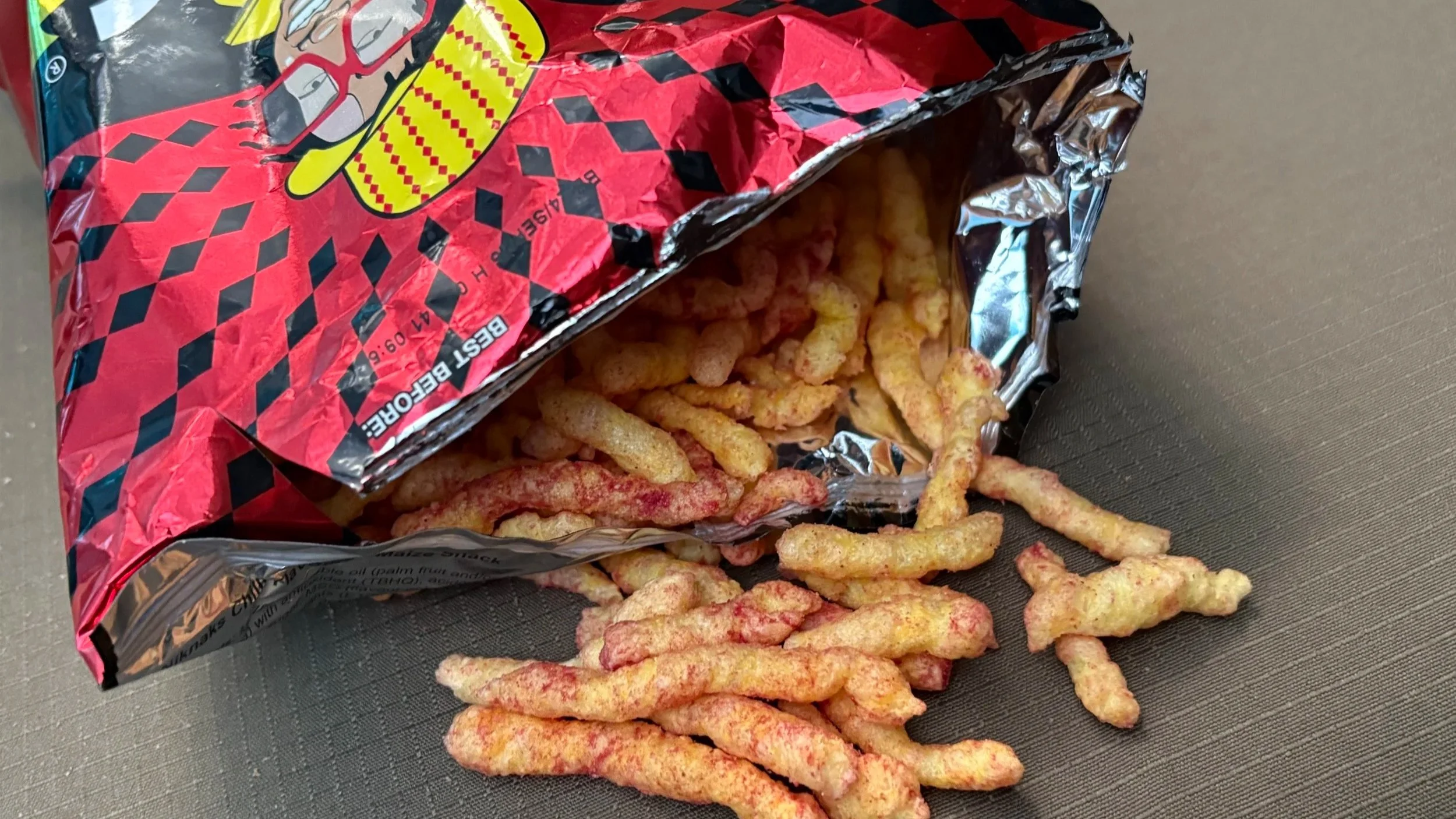
STORY ARK
tales from Southern Africa’s climate tipping points
Welcome to Story Ark, where investigative journalism meets immersive storytelling in a voyage around Southern Africa that is documenting how the climate crisis is unfolding on our doorstep, in our lifetime.
Seasoned science journalist and author Leonie Joubert is on the road in search of the invisible and untold stories that unfold far from newsrooms. She is also unearthing possible solutions to the pressing social and environmental justice issues that surface along the way. Story Ark aims to inform our public conversation and stoke active citizens in a way that supports more resilient and responsive communities in these disquieting times.
The name Story Ark draws on the importance of storytelling and how we can use it to create a Noah’s ark for ecological, cultural and social conservation.
30 July 2025
Piles of sh*t [3]: Solutions to Africa’s nappy pollution crisis
Plastic pollution was a big-ticket item at a recent meeting of African environment ministers in Nairobi. The experience of communal farmers in the Eastern Cape, who are tackling single-use nappies polluting their veld, shows that we need a whole-of-society response to stop indestructible plastics from befouling our environment, bodies and economy.
First published in the Daily Maverick.
19 Aug 2025
Piles of sh*t [4]: A community’s fight against water contamination in Matatiele
As countries fail to adopt a treaty to throttle plastic pollution globally, the story of Eastern Cape herders tackling the scourge of throwaway nappies in communal grazing unwittingly exposes a new form of pollution sweeping in across the region. Airborne microplastics may be to a critical SADC water factory what acid rain was to Europe and North America in the 1980s.
First published in the Daily Maverick.
15 July 2025
Piles of sh*t [2]: Corporates are at odds with our constitutional right to a healthy, safe environment
The story of a cattle herding community tackling single-use nappy pollution in the Eastern Cape’s communal grasslands shows up the foundational flaw in the global use-and-discard economy. Consumers are expected to mop up the pollution coming out of its tailpipe, when powerful profit-taking corporations should be turning off the pollution at source.
First published in the Daily Maverick.
30 July 2025
13 July 2025
Piles of sh*t [1]: Communal farmers tackle nappy waste, and the climate crisis
Lives depend on keeping Africa’s old-growth grasslands healthy. But a grim form of pollution in the Eastern Cape — soiled nappies — is undermining communal farmers’ ability to be good stewards of shared grazing. A simple solution shows how local action, if done at scale, will have regional and global implications as the climate becomes more volatile.
First published in the Daily Maverick.
Photo Essay: Piles of sh*t — Corporates are at odds with our constitutional right to a healthy, safe environment
Pollution comes in many forms. The story of a cattle herding community tackling single-use nappy pollution in the Eastern Cape’s communal grasslands shows up the foundational flaw in the global use-and-discard economy. Consumers are expected to mop up the pollution coming out of its tailpipe, when powerful profit-taking corporates should be turning off the pollution at source.
19 May 2025
Government kills funding for best weapon against thirsty invasive trees
Water-greedy alien trees — especially pine, eucalyptus, and wattles — are amongst the biggest threats to South Africa’s precarious water future. Infecting them with insects or diseases from their home countries is the most effective and affordable way to slow this form of ‘pollution’. But state funding disruptions have put a stop to any new research into novel biocontrol agents.
Photo credit: Grant Martin
First published in the Daily Maverick.
11 May 2025
Agent Orange: Cross-boundary cooperation key to reversing ‘tragedy of the commons’ in grasslands
Lives depend on keeping SA’s old-growth grasslands healthy. They feed our herds, they’re water factories and they mop up carbon pollution, which stabilises the climate. Protecting them from overuse, invasive trees and increasingly volatile weather extremes calls for collaborations that straddle national borders, private fence lines and the boundaries of overburdened commonages.
First published in the Daily Maverick.
4 May 2025
A tale of two dams
In his State of the Nation Address, President Ramaphosa boasted of the preparations to build the Ntabelanga Dam in the Eastern Cape. However, this R10-billion construction will quickly go to waste if the grasslands above it aren’t repaired, and catchment restoration is dead in the water after government funding cuts and stagnant tendering processes.
First published in the Daily Maverick.
21 April 2025
New African zeitgeist
Citizens across Africa want climate action. Internet connectivity, which plugs people into novel media forms, can bridge the climate literacy gap and mobilise citizens to demand more from their governments in North-South negotiations. It can also boost ground-up participation in developmental decision-making as the continent’s climate becomes increasingly unstable.
First published in the Daily Maverick.
More wordsmithery…
Introducing Invisible Ink, the ‘most brilliant climate crisis memoir the world has never heard of, and no one wants to read’, according to the entirely unbiased author.
Leonie’s most recent book is a rollicking, white-knuckled ride through 20 years of misadventures on the frontline of climate reporting in Africa.
It is sometimes dark, sometimes funny, often furious. It's also 'too much', according to one critic. Way too much.
A self-inflicted injury this big — turning a planet’s climate system into chaos — is too much.
Join our intrepid misanthropic memoirist — a competent writer who is not a man, if you can believe it — as she goes utterly mad in the face of climate collapse, and is absolutely sane as she watches herself do so.
Warning: includes at least one irate witch hunter, a few insurgents with hand-me-down Kalashnikovs and murderous intent, some predatory capitalists, a sexist or two, and a deity in the shape of a cat.
Because no adventure is complete without a cat. Even dog people know this to be true.
Invisible Ink is available in ebook or audio book.
“... no adventure is complete without a cat.
Even dog people know this to be true.”
Leonie Joubert has an unusual beat.
She writes about pollution: carbon pollution of the atmosphere that’s driving climate collapse; how highly-processed food-like products pollute our bodies, causing the ‘oil spills’ of hunger, obesity, diabetes, heart disease and the supposedly self-inflicted cancers; and plastics, which are now milling down into such small particles they’re washing up inside our bodies like toxic sludge on a beach.
Mostly, she’s interested in who profits from being able to pollute, and who pays the price.
Through this unusual journalistic beat, Leonie critiques the limitless-growth economic model through the lens of climate change and food security, and how this is driving systems collapse.
She has spent the better part of 20 years exploring these topics through books, journalism, communication support to academics and civil society organisations, non-fiction creative writing, podcasting, and public speaking.
Using long-form journalism, her storytelling weaves ‘person’ and ‘place’ into the complex science of the issue at hand.
Story Ark is a collaboration with the Stellenbosch University School for Climate Studies, the Henry Nxumalo Foundation which supports investigative reporting, and the Daily Maverick. Stories are also being published by Mongabay and Nature Africa.


















